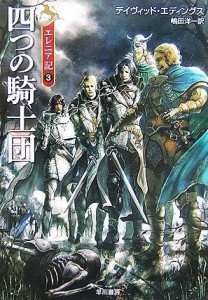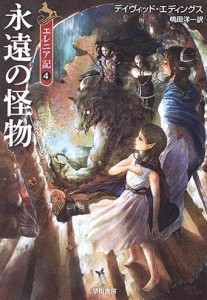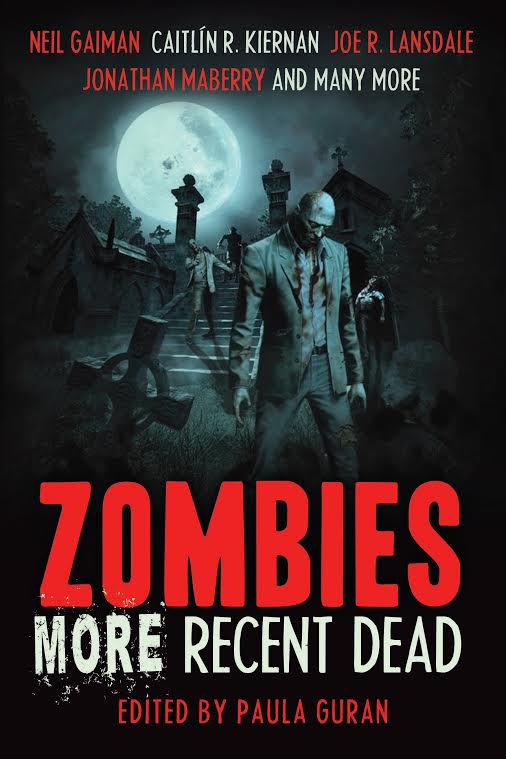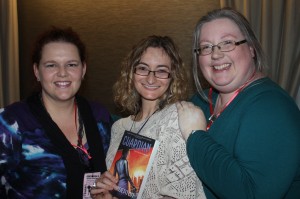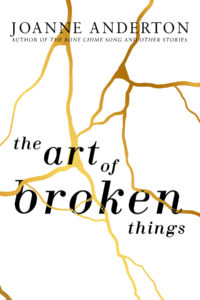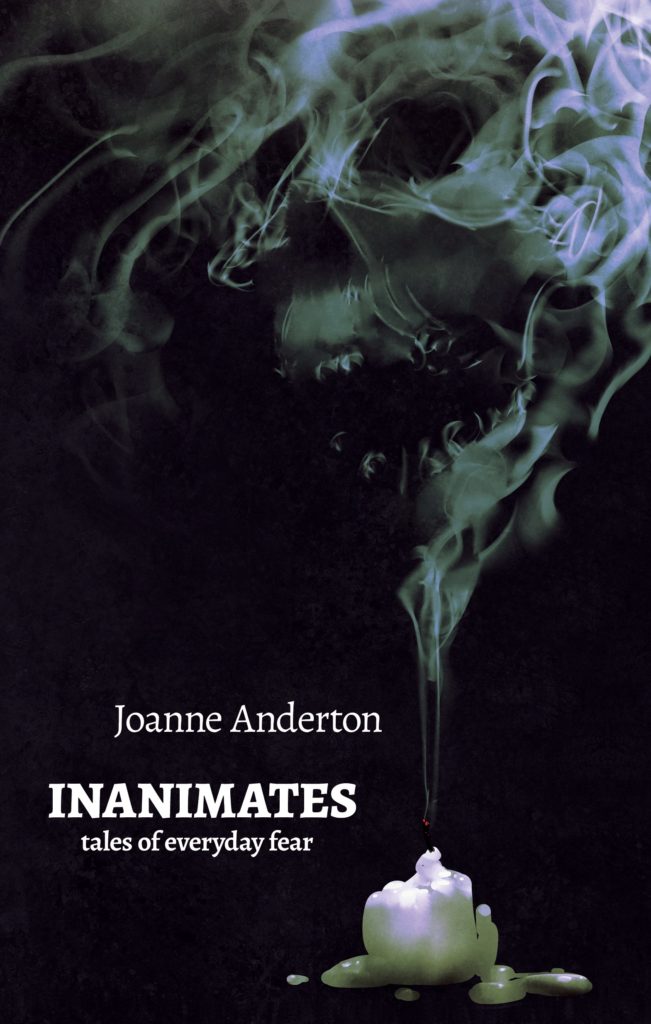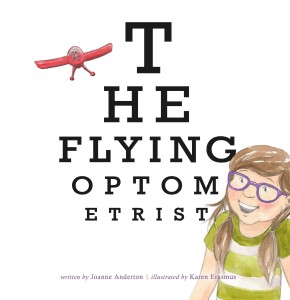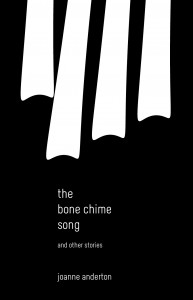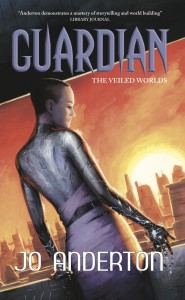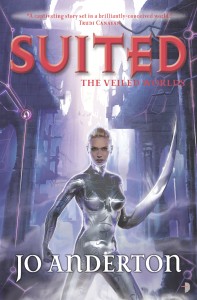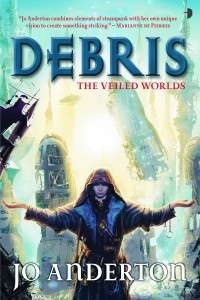EDDINGS RE-READ: The Sapphire Rose, BOOK THREE OF THE ELENIUM
Because we just don’t have enough to do, Alex, Tehani and I have decided to re-read The Elenium and The Tamuli trilogies by David (and Leigh) Eddings, and – partly to justify that, partly because it’s fun to compare notes – we’re blogging a conversation about each book. We respond to each other in the post itself, but you can find Alex’s post over here and Tehani’s post here if you’d like to read the conversation going on in the comments. Also, there are spoilers!
The Diamond Throne reread is here
The Ruby Knight reread is here
ALEX:
Almost the very first page of this book has an Author’s Note, which says that the wife wants to write the dedication. And “since she’s responsible for much of the work,” he’s going to let her. Why don’t you just acknowledge the co-authorship, DUDE?
JO:
I don’t see the ‘David Eddings’ on the covers any more. In my mind, it’s ‘David and Leigh’ 🙂
TEHANI:
Of course, when I first read these I had no idea, but since finding out, it’s been an annoyance every time I picked up one of the books.
Also, I think this is the first of the books where we see a really intrusive breaking of the fourth wall by the author/s? For example:
The appearance of the detachment at the gate was, in Preceptor – ah, shall we say instead Patriarch – Darellon’s words, disgraceful. (p. 155 of my version).
ALEX:
The descriptions of Ehlana, who gets cured of the poison in this book, are beyond horrid. There’s “overpowering femininity,” and women being “notoriously adept” at recognising things like a ring being an engagement ring (did I miss that seminar? How DO you tell that a ring is an engagement ring? How do I know whether I’ve been stooged?). Ehlana is unbearable smug about “netting” Sparhawk. I will admit that the point about wavering between wanting to flaunt her “womanly attributes” and wanting to hide them is fair – and even perceptive – but it’s surrounded by so much URGH. And I’d like to say that I, for one, am glad that Sparhawk tried to get out of their marriage. I know that 17 years’ difference doesn’t HAVE to be a barrier, but there is SUCH a difference between the two of them.
TEHANI:
By the end of this book, I was starting to get an uncomfortable feeling about the number of very young girls who become obsessed with older men. And Aphrael’s manipulation with kisses is most disturbing!
JO:
Oh yes that’s definitely a thing in these books.
ALEX:
urgh.
JO:
And we meet Mirtai! Isn’t she an interesting character? Super-strong, super-warrior who is quite happy to be a slave. In fact, she insists on it.
TEHANI:
Mirtai is such a contradiction! Not always deliberately on the author’s part, I think… This bit really got up my nose on this reread though:
Mirtai’s skin had a peculiarly exotic bronze tinge to it, and her braided hair was glossy black. In a woman of normal size, her features would have been considered beautiful, and her dark eyes, slightly upturned at the corners, ravishing. Mirtai, however, was not of normal size. (p. 324 of my version)
SO. MUCH. WRONG. To begin, what the heck is “normal size”? And the “exotic” bronze tinge of skin and “slightly upturned eyes”? ARGH!
JO:
I should probably leave this discussion for Domes of Fire, because there’s not much Mirtai in The Sapphire Rose.
ALEX:
Jo – indeed – but yes, that exoticising is repellant. And the whole ‘normal size’ thing makes me cross-eyed.
In the last book there was the issue of being ‘misshapen’. I couldn’t help but notice that in this one, when the Pandions are being domineering of the Elenian council, there’s the pederast Baron and Lenda and “the fat man”. Does the fat man ever get named? Fat isn’t entirely an evil thing like deformity is, in these books – Platime is fat but approaches genius-ness on the council, Patriarch Emban is very clever, and both of them are good – but it’s still always mentioned. There’s barely a reference to Emban without mention of his belly. And he uses that sometimes – to defuse tension, for instance – but I’m still not entirely comfortable with it.
TEHANI:
That’s interesting though, because both Platime and Emban are important, good characters – not presented as useless or bad people, and so I guess I read that as subverting the trope? Although there is Otha…
JO:
Even though Platime and Emban are good and important characters, their ‘fatness’ is mentioned a lot. Like it’s a personality trait.
TEHANI:
Very true.
ALEX:
Speaking of the council, I would like to declare my sympathy for Lycheas. He’s a dimwit and a pawn, but surely he deserves sympathy.
TEHANI:
Oh, I disagree! He’s not very bright and he’s been led astray I accept, but I think he knew he was doing wrong, and there were times he could have chosen another path. He was as hungry for power as the rest of them!
ALEX:
Hmm. Perhaps. How much choice did he have with a mother like that probably poisoning him from the start? (If we accept the premise of the story.) … oh wait, does that shoot my theory down, at least somewhat, given that is probably exactly the reason why he’s hungry for power? Dang.
JO:
I think the Eddings set him up to be disliked, and he simply has no say in the matter. He’s always portrayed as snivelling and pathetic and stupid. He may or may not be hungry for power, it doesn’t matter. He’s there to be a lesser baddy that everyone can look down on and routinely threaten to kill.
ALEX:
You’re saying he’s just a narrative device? SAY IT AINT SO.
A rather chilling part of this novel is the utter lack of regard for the civilians in Chyrellos, during the siege. It was really quite unpleasant reading.
JO:
I find the siege so boring I have to say that never really bothered me. The scene that does stick in my mind is when Sparhawk and an unnamed soldier witness a woman dragged into an alley and quite obviously raped (though thankfully off camera). The soldier, crying because she ‘could have been his sister’ shoots the rapist. But then the woman staggers out of the alley, sees her not-quite-dead rapist, takes his dagger and violently finishes the job and steals his loot. The soldier ‘retches’ and Sparhawk says “Nobody’s very civilised in those circumstances”.
This scene was always a WTF moment for me. When you consider Sparhawk’s career, what about her actions make them ‘uncivilised’, exactly? He does much worse things to people and is rewarded for them! Is it because she’s a woman? Or because she’s not a Church Knight and it’s okay when they do it. Or because she took the loot? I mean, seriously…?
ALEX:
Yes!! This!! I was so ANGRY at that reaction from the men – who are safe on so many levels from this sort of thing – getting all uppity about her taking revenge. I don’t like her doing it either, but I don’t like the initial rape even more.
I cried at Kurik’s funeral. Not at his death – that all happened too fast, I think – but when I got to the funeral…well, I was glad to be by myself. However, I am still suspicious of the idea of Aslade being quite so accommodating of Elys.
JO:
Kurik *sniff* 🙁
TEHANI:
And you know, none of that business really makes sense. Kurik is portrayed as steadfast, loyal, moral and really quite upright (even uptight?), so the fact he cheated on Aslade (and their four sons, essentially) is, well, just a bit weird. It was a useful way to have Talen important to the group, I guess, but the character path is very odd.
ALEX:
YES. Also it makes adultery completely fine, which… I know there are other ways of doing relationships than ‘conventional’ monogamy, etc etc, but not within THIS world’s framework – everyone else who does that is regarded severely. Whereas Sparhawk etc are all, “dude, no worries! Everyone sleeps around sometime, the wimmens is so attractive we can’t help it!”
JO:
YES from me too. Never felt right to me for exactly those reasons.
TEHANI:
I do like the way the Kurik’s sons talk about their “mothers” in the later books though. That said, remembering I read the Tamuli trilogy first, I was quite certain Aslade and Elys had been both married to Kurik, the way they are referred to there!
JO:
Heh yes. I can imagine. Although I was always proud of Aslade and Elys for being able to put aside their potential conflict and just get on with life. So often the relationships between women are portrayed as bitchy, jealous, spiteful things. And usually its over the attention of a man. So I appreciate that they went down the opposite path.
Actually, in the Tamuli there are a lot more examples of strong female friendship too.
TEHANI:
Some more perpetuation of stereotypes here, too. In this case, the temper of the red-head:
In Delada’s case all the cliches about red-haired people seemed to apply. (p. 282 of my version).
JO:
Yeah I thought they got a little carried away with that!
TEHANI:
And what the heck is this bit of elitism? Stragen says, Whores and thieves aren’t really very stimulating companions… (p. 410 of my version). Um, well Talen and Platime AND HIMSELF are thieves and all presented as quite stimulating! The whores get a poorer presentation, but still!
ALEX:
That bit also made me very cranky. Again with the superior attitude.
TEHANI:
And this awful bit of Ehlana characterisation:
“Would you all mind too terribly much?” Ehlana asked them in a little-girl sort of voice.
YUCK! The woman is a queen, and fully in command of herself and the power she wields, yet she resorts to that (for no reason, anyway!)?! No! We talked a bit about this in one of the earlier reviews, how the women themselves are supposed to be powerful, and there are quite a lot of them, which is nice, but the actual presentation of them really undermines this at times.
JO:
Yes! This is what’s been irritating me the whole time, and it only gets worse as the series goes on. Doesn’t matter how strong a woman is, she still resorts to hissy fits and theatrics or childishness to either get what she wants, or basically keep control of the ‘relationship’. Even Sephrenia does it in the later books! It just feels to me like the books believe that deep down, women are irrational children. OR that they will resort to acting like them as a way of keeping their men in line.
JO:
Am I the only one who finds Ehlana’s speech to the council a little…difficult to believe. All these supposedly hardened politicians/Patriarchs completely suckered in by her ‘divinely inspired’ speech? Just because she’s pretty, or something? And because she ‘fainted’?
TEHANI:
I have such a different view of the Patriarchs to you! I always read ANY of those political gatherings as being a bunch of little boys just grabbing for power, none of the “hardened” politicians at all! In fact, Eddings seems to have very little respect for political systems at all. They’re all corrupt or useless!
ALEX:
I don’t think they’re MEANT to look like that, but they sometimes do – and it’s another thing that annoys me about the Eddings portrayal of religion, because it’s JUST another instance of politics and again there’s so much uselessness and cunning and unpleasantness. Also, Ehlana manipulates them, and I think it manages to make her look silly – conniving and dangerous with the using feminine things in dangerous ways – AND it makes the Patriarchs look silly for falling for such obvious, feminine strategies. Way to go for insulting two groups there!
JO:
Last time I said that I found The Ruby Knight a lot faster-paced and more enjoyable than I remembered. I have to say the opposite for The Sapphire Rose. Oh god I was so sick of the siege by the time it ended, and it seemed to take forever to get to Zemoch. It felt like so much padding. Just destroy Azash already!
TEHANI:
Some excellent examples of Faran the human horse again:
Faran made a special point of grinding his steel-shod hooves into a number of very sensitive places on the officer’s body.
“Feel better now?” Sparhawk asked his horse.
Faran nickered wickedly. (p. 155 my version)
JO:
I could summarise the plot again but you probably don’t want me to do that this time!
They cure Ehlana. She’s all grown up now and in love with Sparhawk. They ‘accidently’ get engaged. Off to Chyrellos to stop Annias being elected Archprelate. There’s a siege which goes on forever. Then Wargun and Ehlana turn up and the siege is over. Ehlana and Sparhawk get married. They go to Zemoch with Bhelloim to kill Azash. It takes forever. They get to Zemoch. Kurik dies. Martel dies. Otha and Annias die. Azash dies. Lycheas dies. Arissa kills herself. They return to Cimmura. Everything’s peaceful, but kinda crappy, because the gods are shell-shocked by Azash’s death. Danae happens. Eventually, Aphrael and everyone go on holidays and spring returns.
ALEX:
Nice work there, Jo. I would add: Sparhawk and Ehlana get married in the same way that a person might buy a horse; Martel dies but everyone’s real sad, because actually he was decent and just led astray, y’know? And “Danae happens” means that a goddess is incarnate in a different racial family and that’s really kinda cool.
JO:
Heh, that’s awesome.
TEHANI:
Well, we’ve picked a lot of nits in the Elenium books, but final verdict on the first three? For me, I have to admit I still thoroughly enjoyed reading them, with grins and tears throughout, and the comfy blanket feeling of an old favourite that still (mostly) holds up. Although there were definitely a lot more grimaces at the rough patches than when I was younger!
ALEX:
I think I feel basically the same as you, Tehani. It really is a warm comfy blanket… with moth holes and a few scratchy bits… but a lot of love and memories holding it together.
JO:
Couldn’t agree more! I might snipe at them, but I still love these books and rereading them has been thoroughly comforting. It also reminds me what I love about reading and writing in the first place. It’s just so much fun!

